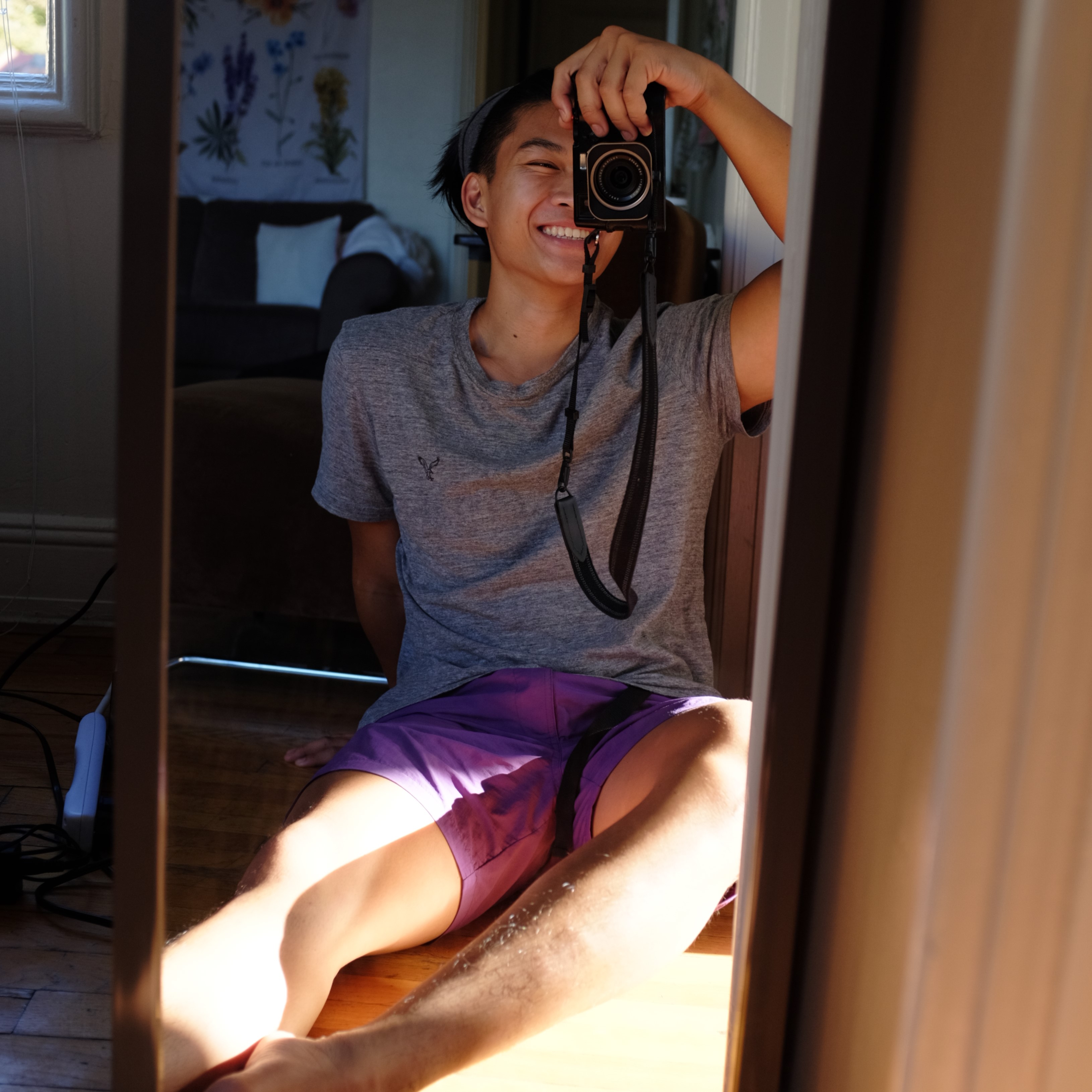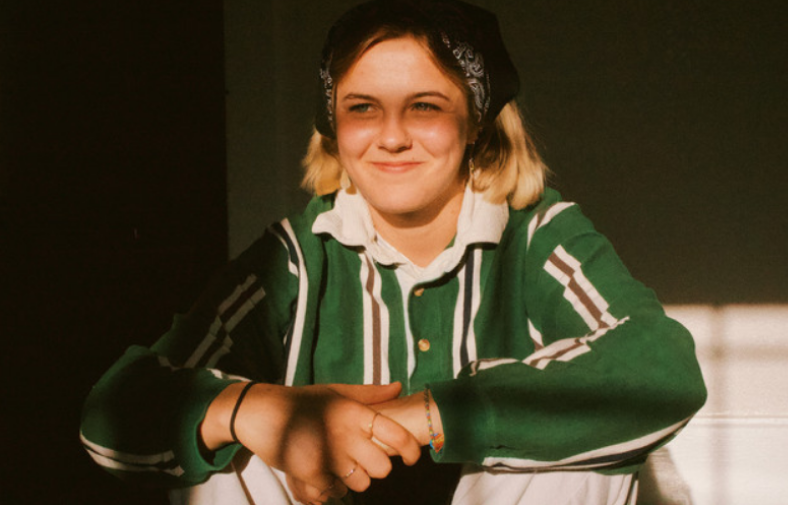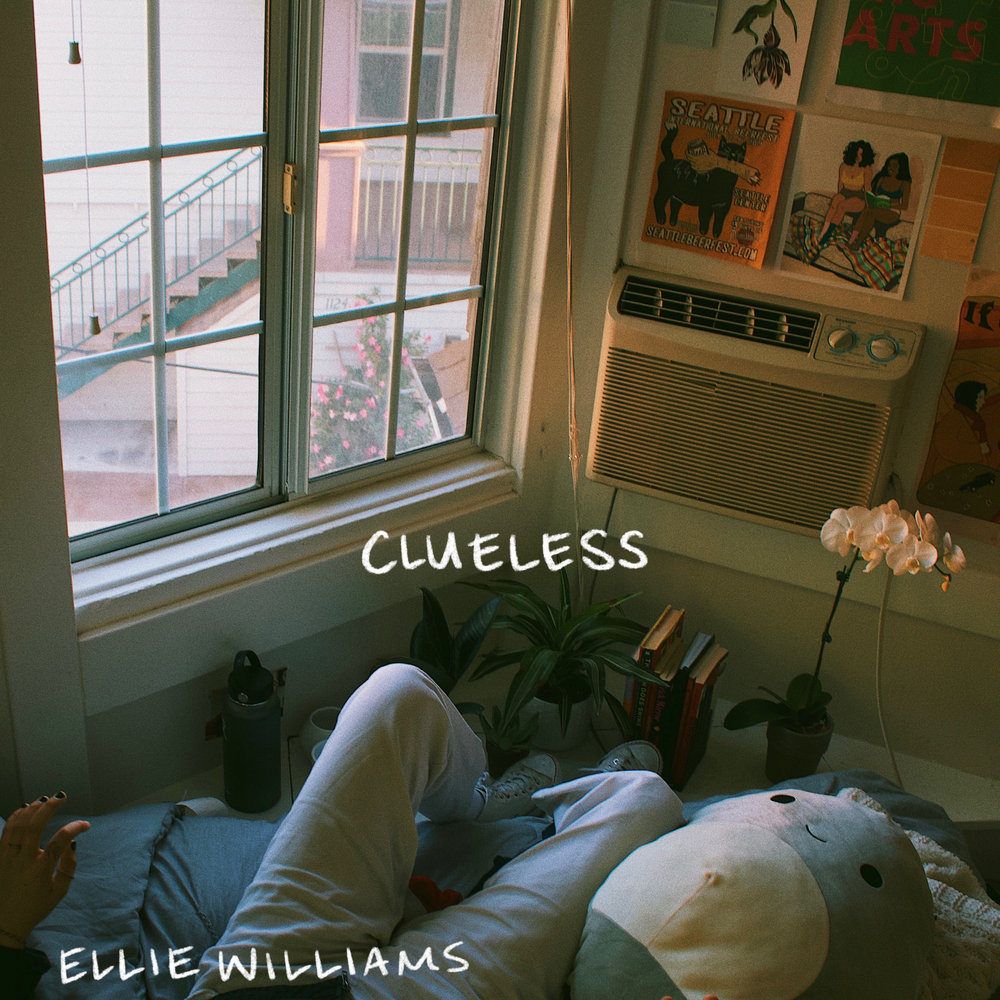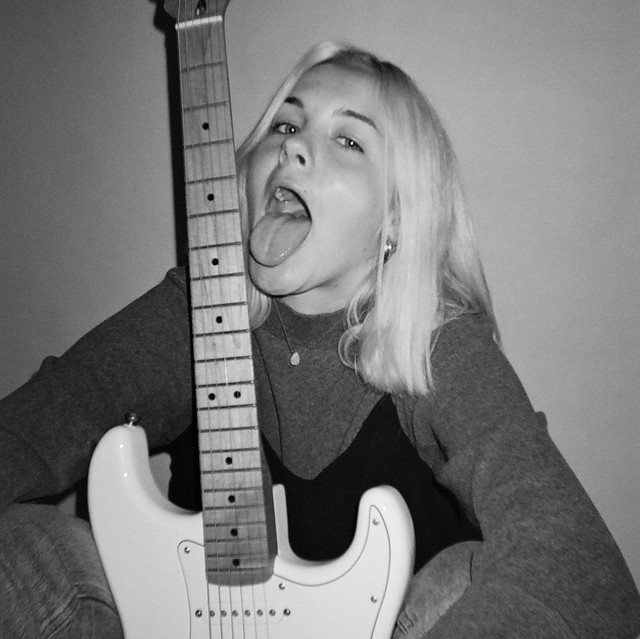
November 28, 2020

Ellie Williams is a songwriter/multi-instrumentalist, whose sound lies around alt-pop with funk influences. She attends USC’s Thornton School of Music, and is working on her sophomore album, after having released her debut album, “Act My Age”, at 14. I called her up on a Saturday morning and asked her a few questions about songwriting, and here are some of her responses.
Do you draw any inspiration from the creative processes of other artists?
Honestly, I think most of the time when you study other artists, at least in my experience, you don’t always study their songwriting process, you more so study their journey and how they got to where they are and the music that they’ve released. Songwriting processes that have intrigued me have just come by word of mouth. So as far as melodically I’ve heard of people that go into the studio, and will just sing a bunch of melodies and then we’ll cut them up, and then place them together to find which one sounds the best. I’ve heard other stories of people that write the whole song first, and then add melodies, or the opposite of that, where they’ll get all the music down and then write the chord and then write the words or kind of do at the same time.
What is your personal songwriting process?
I kind of like doing chords, first words, words and melody at the same time. I don’t know, I think my writing process is kind of boring, to be honest. I think usually just starting with music and then adding words and melodies. And as far as writing goes, I think you can either have a day where you’re really wanting to vent about one situation and writing comes very naturally. Or if you’re working at it, and you’re like okay, I want to write, I want to write a story about this. These are my characters. This is my plot. This section is going to be when they meet this section is going to be when the kiss happens or something of importance, and then this half is going to be the turnaround, and what goes wrong.
How has the guitar, as one of your main instruments, tied into your songwriting?
It was really nice when I didn’t know what I was playing.
And anything that I could make sound like a nice chord was super exciting. So I’d play like a really basic chord progression, like G, C, E minor, D, or something like that. And I’d be like, wow, this is the best thing that I’ve ever heard in my life. Stunning. I am literally Beethoven. And then once you kind of learn what you’re doing, I feel like it’s easy to get sick of everything that you know, you’re like, well, I’ve already done that, like, I know how to do that. And it gets harder to come up with unique chord progressions, even though I don’t really think that exists.

What is the story behind your latest single, Clueless?
As far as the way that the song sounds, I definitely had other artists’ inspiration, specifically, the song Distance by Emily King… it has this really spacey intro. And then this really strong groove comes in, you just start immediately vibing when the group comes in, and I knew that I kind of wanted something similar. So I was playing a live show with some high school friends of mine, Andrew Pham on bass, Caleb Tishman on drums, Sam Victoria on guitar. I was like, oh, this song could be like Emily King. I think it’d be cool if we could do this here… the chords were already written because I wrote it on guitar. So that was what we were working with, like we had all the elements. And then I think we just kind of played through it a couple times with those elements. And that’s how Clueless came about, that’s how the arrangement just kind of developed.
I don’t know if I can take much credit for that, because they just can take thoughts out of my head so easily.
But that’s how the song came to be what it sounds like now And then of course, you know, when it comes to actually recording it, I had the same guys come in we just played a take through and used that as the final recording and added some keys parts in it added some other production elements, which I can’t take credit for because that was my producer Wayne Wilkins.
Clueless just has more sentimental value to me because of who it was written about, like when it was written in my life, because each song that I write and release represents a very specific point of my life. And clueless was a very clear point of my life that I remember very fondly.
It’s pretty cool. Like, just knowing that you’re gonna revisit the song in like, five, ten years, and just think, okay, that was me.
It’s really fun to think that each song is a little Time Capsule, almost.
So I can look at the lyrics and be like, okay, I remember, in what room I was in, when I was writing this. I remember who was with me, or if I was by myself, which is most of the time, and what instrument I was writing on first, like, partly was written on a ukulele first. Actually, that one changed a lot. My first recording is of me on a ukulele. And it sounds so different than what it does sound like in the recording. It’s interesting to just remember those details, because I also have a horrible memory, typically speaking, but whenever music is tied to some aspect of my life, I tend to remember it a lot better than without.
Do you get writer’s block? If so, how do you work through it?
All the time, writer’s block sucks. Um, I think, ah, it’s hard. Sometimes when I hit writer’s block, I kind of try to take a step back and try to think about why I feel stuck and where it’s coming from. A lot of times, I’ll have like, really, really busy months where I’m like writing all the time. And then I’ll get to a point where I just like, I have nothing left to write about, like, I feel really stuck. And if that’s the situation, then I’ll take a step back and I’ll take a little break and because also, you know, the songs that you write are often about what’s going on in your life. And if you’re writing all the time, and you’re not living your life, you don’t have anything to write about.
So sometimes it’s necessary to like take a step back and be like, Okay, I’m not gonna write today, I’m gonna have a normal day and just live my life and then come back to it other times, or listen to other artists and try to replicate one of their songs just because it’s an easier thing to do, a class assignment once where I was writing a response to Hello by Adele… I kept the same chords, I had her song as a reference. And then I just wrote a response to another song, which is a lot easier to do than starting from scratch. Or I’ll try to read a bunch. I like reading poetry books and watching spoken word poems on YouTube law as well. Sometimes I’ll just try to flip through a dictionary and pick a word, then just do word association and see what comes up, journaling also helps a lot.
If you could give your past self any creative tips, what would you tell them?
Honestly, I don’t know if I would. I don’t know if I would tell my past self anything. Not because not because I didn’t need it. Because I was definitely my past self sucked at music. But I also think that if there wasn’t that element of, like curiosity, and just trial and error, then I wouldn’t have figured out what I like, or what works and what doesn’t. For me personally, I also have no idea like, what I would tell myself to do like, oh, like focus on like chorus melodies, or maybe don’t write about every situation that happens in your life. I don’t think I would tell my past self anything. I think they just need to figure it out. And then same for me now, like, I just got to figure it out. And I will write a lot more bad songs, than good songs. And I think that’s a good thing to do. Moving forward. So yeah, I don’t know if I would tell myself my past self anything.

